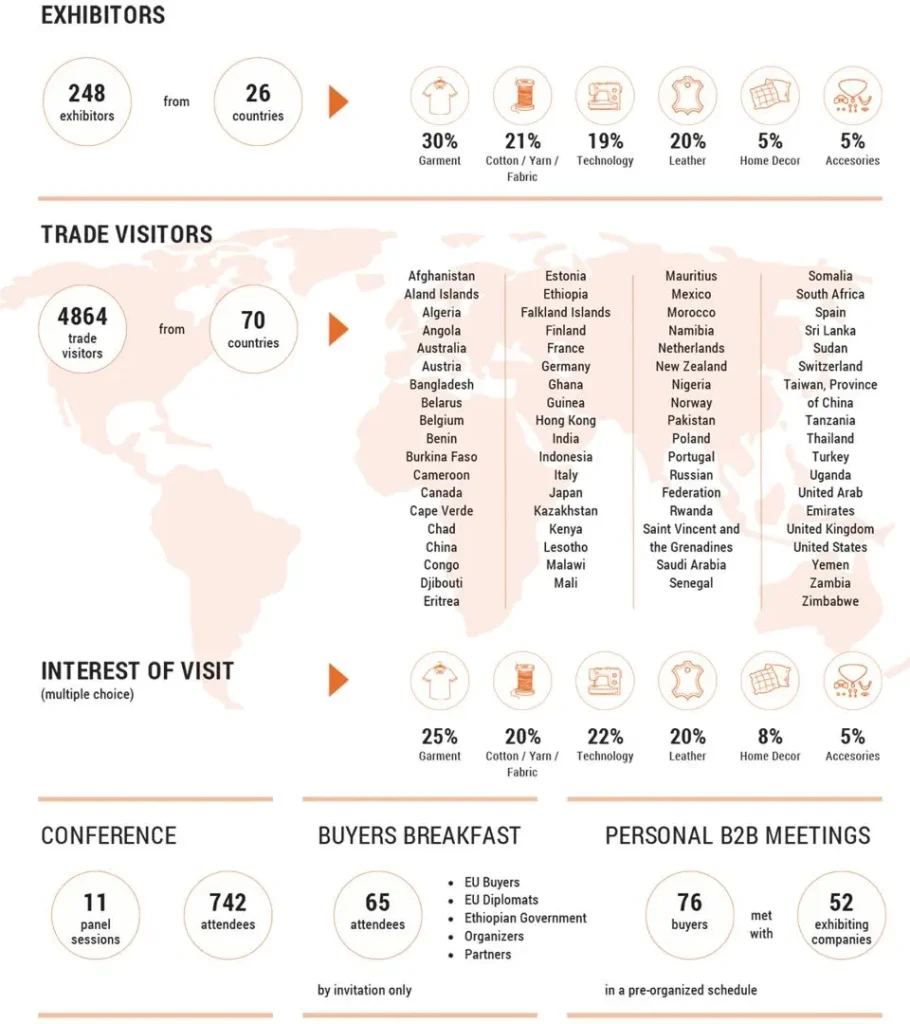By: Kohan Textile Journal
Africa Sourcing and Fashion Week (ASFW) has emerged as a powerhouse event in the textile and apparel sector—not just in Africa, but on the global stage. We sat down with Skander Negasi, CEO of ASFW, to gain deeper insight into the event’s growth, Africa’s evolving role in global sourcing, and what’s on the horizon for this influential platform.
1. ASFW has become one of the most important trade platforms for Africa’s textile and apparel sector. What key strategies have contributed to its continuous growth and international recognition?
Skander Negasi:
ASFW is now Africa’s largest exhibition covering the entire textile value chain. What sets us apart is our dual focus—promoting Africa’s apparel and creative industries, while also serving as a gateway for international suppliers of fabrics, technology, and accessories. This balance has created a dynamic ecosystem where African manufacturers gain visibility and exposure, and global suppliers can access a fast-growing, high-potential market.
2. How do you see Africa’s position evolving in the global textile and fashion supply chain over the next five years, particularly in terms of sustainability, sourcing, and value-added manufacturing?
SN:
The shift of textile and apparel manufacturing from Asia to Africa is already underway. We’re seeing Chinese investments in East Africa aimed at leveraging duty-free access to markets like the US. But beyond geopolitics, Africa is naturally sustainable—from design to production—because sustainability has always been a necessity here. The continent is learning from Asia’s past mistakes and is focused on building value-added, responsible, and forward-looking supply chains.
3. What are some of the biggest challenges facing African manufacturers and suppliers today, and how does ASFW help address or highlight these issues?
SN:
Two major hurdles are image perception among global buyers and limited governmental support in some countries. In many cases, customs delays or high import duties on fabrics, accessories, and machinery hinder efficient production. Through ASFW, we aim to raise awareness, facilitate dialogue, and connect African manufacturers with international buyers and policymakers, ensuring that these issues are brought to the forefront and addressed.
4. You organize events not only in Ethiopia but also under the Texworld/Texaround Africa umbrella. How do you tailor each event to meet the specific needs of the host country’s industry and market potential?
SN:
We focus on regions with competitive advantages and supportive government strategies for textile development. Whether it’s Addis Ababa, Nairobi, or Dakar, we adapt the ASFW format to highlight local strengths while bringing in investors, global buyers, and supply chain players. ASFW has become a trusted platform for serious industry stakeholders looking to engage meaningfully in Africa’s textile future.
5. With increasing global interest in ethical and transparent sourcing, how does ASFW support African producers in aligning with international compliance and certification standards?
SN:
ASFW actively partners with certification bodies, such as GOTS, who are involved in all ASFW chapters. These organizations not only exhibit at our shows but also conduct informative seminars and training. Our conference programs during the exhibition are key tools to educate and guide African producers on meeting global standards and building transparent, ethical supply chains.
6. Can you share any exciting new features, partnerships, or country pavilions that we can expect in the upcoming edition of Africa Sourcing and Fashion Week?
SN:
This year’s ASFW in Addis Ababa (October 30 – November 2) is shaping up to be our most global yet. We’ll feature country pavilions from Germany, Italy, Türkiye, China, Ethiopia, Kenya, Rwanda, and Senegal. Overall, we expect exhibitors from over 30 countries and buyers from more than 70 nations. It’s an exciting testament to the growing relevance of Africa in global sourcing conversations.
Conclusion
Under Skander Negasi’s leadership, ASFW has not only become a trade fair but a transformational platform, accelerating Africa’s emergence as a sustainable, competitive, and creative force in the global textile and fashion industry.
































